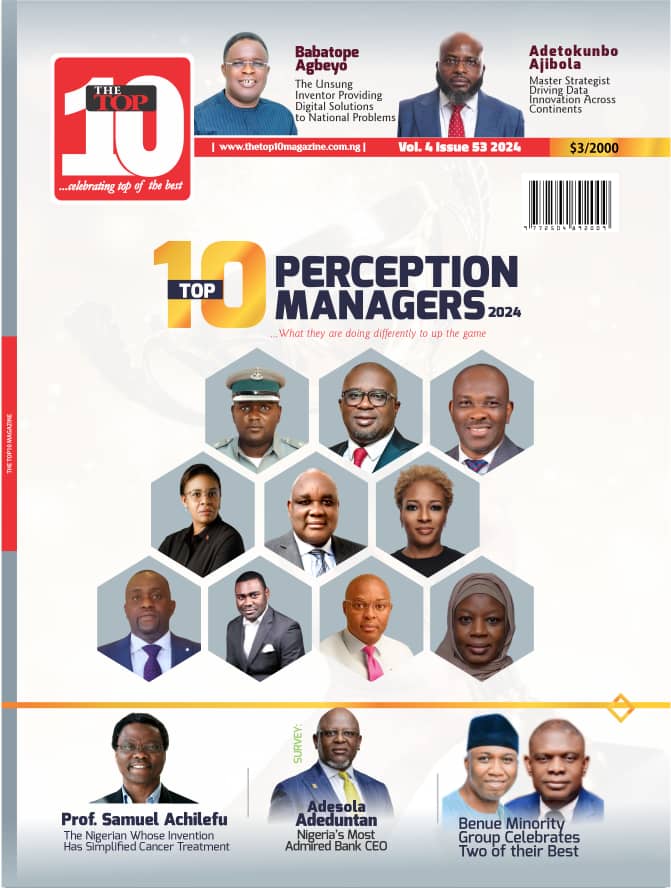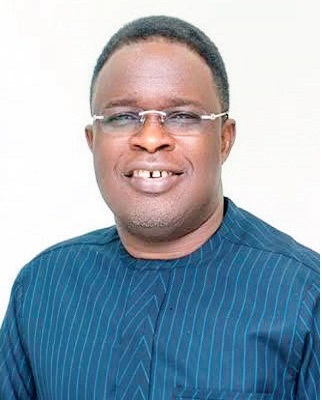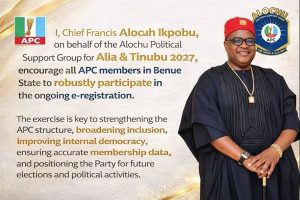It is one of the contradictions for which Nigeria appears to be well known that it has an abundance of human resources that could drive its socio-economic greatness in the comity of nations, yet it has continued to look outside its shores in search of those that would show it the way. It has been a question of looking outwards for what is available within, much in the same manner the country, a leading oil producer, has been relying on imported petroleum products for its local needs.

The fact has been acknowledged around the world that Nigerians are among the brightest minds behind the numerous feats that are recorded on a regular basis in various fields like medicine, ICT, manufacturing, the academia, arts, etc, in the industrialized countries. In other words, Nigerians play active roles in powering the technological and economic breakthroughs of the industrialized countries – something they should be doing in their own country.
There is a consensus that back home in Nigeria, the number of geniuses with potential to have the country listed among technologically advanced countries could surpass the number of its citizens contributing to the success of those countries. All it would require to get these Nigerians working to put the country on the world map of socio-economic and technological advancement is encouragement from both the public and private sectors.

Dr. BabatopeAgbeyo, Chairman of the Cornfield Group, is one of the uncelebrated Nigerians who are silently driving a revolution in the area of technological advancement. Agbeyo is almost everything rolled into one – an inventor, innovator, strategic thinker, entrepreneur, philanthropist, etc. The man that sits atop an octopus with legs in different fields has a string of inventions under his belt. In other climes, he would be a national treasure, celebrated across continental borders, with his name etched in the history books, much in the same manner Thomas Edison, the American who was the father of invention in the 19th century, is being remembered till today.
It bears mentioning that Agbeyo and Edison share some similarities. Both men have the same character trait of being restless in their search for new knowledge through inventions, and the tendency to move on to the next invention once they got one working. A remarkable similarity is the inclination to be less interested in fame, but more interested in the contributions their inventions can make in the advancement of human development. It is the reason Edison has been credited with far less than what he actually achieved in the world of inventions, the same reason Agbeyo has largely remained unsung, in fact, virtually unknown, despite the fact that his inventions have revolutionized operations and activities in various areas of the national life. The only difference between the two men is that while the American did not receive any formal education in the classroom having been wrongfully dismissed as a dullard in school, Agbeyo has had formal education – up to university level.
However, despite the relatively insufficient recognition Agbeyo has received from home, an international recognition of his worth and value came recently when he was invited by the United Kingdom district of the Institute of Chartered Accountants of Nigeria as the Distinguished Speaker at its 11th International Accountants’ Conference in London, with the theme: “Cross-Border Integration for Economic Resilience”. Agbeyo spoke through his son, Tolulope who represented him, on the topic, “Digitalization: Navigating Opportunities and Challenges in Cross-Border Integration”.
Speaking from the point of view of the expert that he is, Agbeyo said cross-border integration in Africa, particularly through digitization, offers opportunities to tackle developmental challenges and enhance economic growth on the continent. He listed the opportunities to include financial inclusion through mobile money and digital payments, and the numerous benefits offered by the African Continental Free Trade Area, which is potentially the largest market in the world. He invited private sector players like himself to invest in innovation in digital solutions to the continent’s socio-economic problems.
Agbeyo walks his talk. He stood on solid grounds when he called for involvement of private sector players in finding digital solutions to the continent’s problems because he has made inventions that have had considerable impact on critical areas in Nigeria, namely, security, information dissemination, product authentication, data warehousing, process delivery and education. A major innovation by the serial inventor was the design of a complete security system that comprises biometric and biodata collection, real time verification, authentication and reporting through physical terminals over secure web applications and hand-held devices. This solution was acknowledged and approved by the federal government in 2011 as the panacea to the plethora of national security challenges the country has been facing. It is the system the Nigeria Police has been using in its effort to combat crime in the country.
In a manner that is not befitting of the towering image of Nigeria in the international community, the country is general perceived, though erroneously, as a haven for fake, adulterated and counterfeit products. Agbeyo came up with the design and application of a device that can easily authenticate the originality or fakeness of a product, or a certificate. The application, known as Botoseal, is the first of its kind on the entire planet. It was pioneered by the United Kingdom branch of the Cornfield Group, and was launched on November 21, 2016.
Examination malpractices have constituted a cankerworm threatening to destroy the fabric of Nigeria’s educational system. This has been a problem at almost all the layers of the educational system in Nigeria, but notably from secondary to tertiary levels. In days gone by, children cheated to pass examinations without the knowledge of their parents, because of the consequences that would befall them if the latter should know they did not pass on merit. But over the years, parents have been the ones encouraging their children to cheat to pass examinations. Perhaps in no other examination is this malaise more pronounced than the Unified Tertiary Matriculation Examination (UTME) into institutions of higher learning, which involves parents actually hiring mercenaries to write the examination for their wards. The practice reached a nationally embarrassing level in April, 2024, when a father was caught impersonating and actually writing the examination for his child at one of the centres.

Agbeyo, the inventor, designed the technology to curb examination malpractices not just in Nigeria, but also in the West African sub-region, using customized enterprise solutions that pull together 3.5 million service users in the area. He also designed an examination solution known as the Candidate Identity Verification, Attendance, Malpractice and Post Examinations Management System (CIVAMPEM), which is today being used by the West African Examinations Council (WAEC), the National Examination Council (NECO) and the Joint Admissions and Matriculation Board (JAMB). He designed a ‘Dos and Don’ts’ manual to guide students against the pitfalls of examination malpractices, some of which they inadvertently engage in, without knowing.
In order to curb the menace of fake certificates, Agbeyo designed a device that could authenticate the genuineness of a WAEC certificate, which could be operated on a digital platform on Android and IOS devices. This device simplifies the process of issuance and collection of certificates, and also helps in the recovery of lost or damaged certificates.
In the beginning

Agbeyo took the first step towards building what is today a conglomerate in 2006 when he set up Cornfield Transnational Limited, a company that specializes in the design and manufacture of technological products to address specific needs in the public and private sectors. The initial focus of the company and the reason for its establishment was to tackle the disingenuous practice by students to use their mathematical sets and calculators as Google to cheat in examination halls. “Calculators are like Google”. Agbeyo explained, in answer to a question about how the device could aid examination malpractice. “They have internet on them and they put many candidates at advantage above others. Those that cannot buy the high-end calculator will just buy a calculator required by the examination body. So, we said, ‘okay, why can’t we make these mathematical instruments transparent’? And we asked what kind of calculator the examination bodies needed. They told us and we started working and made everything a single object”.
The success of Cornfield Transnational Limited spurred Agbeyo into conceiving the idea to do more to curb examination malpractice. He set up Botosoft Technologies Limited, the company that designed and developed CIVAMPEMS, to curb examination malpractices.
“When there was a need for us to provide ICT services to our clients, we realized we needed to create a system whereby you can use your smart card to automate candidates’ attendance through a mobile terminal”, he recalled. “You can also use it to report malpractice right on that same day that the candidate cheated. And then the issue of impersonation has to be dealt with. And then Botosoft came on board”.
The third baby in the family was Media Concepts Limited, which produces examination brochures that contain information on rules and regulations governing examinations. The fourth company in line, FOAM Studio, is into monogramming. “It’s a corporate gift avenue, because we see that some of our clients need this”, Agbeyo explains. “The main body of the company is abroad, but we are moving down to serve clients in various parts of Nigeria”.
A smart thinker with a knack for ingenuity, Agbeyo ensures the money made by all the subsidiaries circulate within the Cornfield Group. The companies complement one another by patronizing themselves, thereby eliminating the need to go outside for any service or raw material.
A study in humility
Any attempt to describe Agbeyo as a workaholic would be to make an understatement, or for want of a better adjective to use. He works hard, the reason he has a Midas touch that turns everything to gold. This is because he follows his dream, and is actually driven by it. “When I dream something and know I can achieve it, I go for it”, he says, with an air of self-satisfaction. “When I have a dream I tell my colleagues, and if they are satisfied we go for it”. You would think his ‘colleagues’ are his peers or associates with whom he rubs minds on any new project he intends to execute. They are actually his employees. He calls them colleagues, not employees, to underscore the fact that he does not see them as being in any way lower than him. In fact, he needs their agreement to embark on any new venture. Never mind the fact that he pays their salary. He is a study in simplicity and humility.
A different view on the cause of failure of small businesses
Agbeyo does not flow with the popular tide that blames the challenges faced by small businesses in Nigeria on lack of access to funding. More than any other factor, there seems to be a general agreement on why small businesses find it difficult to thrive, or even take off, in the country. The culprit is usually poor financing. Agbeyo does not belong in this school of thought. He believes the problem, in most cases, lies in the choice of businesses by would-be entrepreneurs or start-ups.
He says many people go into business for the wrong reasons, which could range from attempt to copy others; an effort to sabotage an employer by seeking to become his competitor overnight, or simply an attraction that comes from purely financial considerations. The choice of business, he says, is also seen by some people as a class symbol.
It is common to see people jump into businesses because they see others succeed in those lines of businesses, without exercising restraint and patience to ask and provide sincere answers to the relevant questions relating to those businesses. For instance, there are relevant issues like having a clear idea and full understanding of what a business is all about; having the requisite knowledge and skill to run the business; being able to identify the right people needed to make the business succeed, etc.
“Sometimes people go into a business just to belong to a certain socio-economic class”, says Agbeyo. “It doesn’t matter if they know nothing about that business”.
He attributes the current situation in which more than 80 per cent of the over 30 million small and medium scale enterprises in Nigeria are moribund to wrong choice of business, which manifests in people going into businesses they know little or nothing about. He lists what an intending entrepreneur must have before taking the leap into the world of business to include passion, originality, mental capacity, environment and financial base. “In choosing a business, you have to look for what you have passion for, and also see if it could be needed by others”, he says. “You have to find a way to turn your passion into business and make people pay for it”.
Turning attention from job seeking to job creation
The federal government has in recent times been mulling the idea of re-designing the country’s education curriculum to accommodate entrepreneurship and skills acquisition, especially after secondary education, for those who cannot make it to the tertiary level. The objective is to create a new mindset among Nigerian youths not to see paid employment as the ultimate.
Agbeyo aligns with this view and objective. He wants the country’s tertiary institutions to be tailored towards entrepreneurship, rather than employment. “We should stop teaching our children how to write application; emphasis should be on how to write business plans and business proposals”, he says. “Education should be how to be creative; how to be an entrepreneur, and how to discover themselves. They should be taught how to create jobs, not how to look for jobs”.
Taking life easy
Despite the highly demanding nature of his job and the height of success he has attained in life, Agbeyo organizes his work schedule to ensure he does not bite more than he can chew, which could be detrimental to his health and, by extension, his life. His work schedule is neither too heavy nor too light. He strikes a balance, working when he has to work, and resting when it is necessary. His idea of rest is to stretch out on a couch in his office.
At home, he relaxes by seeing movies on television and spending quality time with his family. Agbeyo is not your typical ‘high and mighty’ Nigerian who is literally ubiquitous and present at every social event. He does not court the limelight; neither does he belong to any social club, as people in his position are wont to do. The only club of which he is a member is his town’s development union.
He is a Christian, though not necessarily a church goer. “You don’t need to go to church to be a Christian”, he maintains. “Whether I am born again or not is between me and my God”. His idea of being a Christian is ability to live according to the teachings of Jesus Christ, especially the Golden Rule that admonishes people to do to others what they would like done to them. This time-tested rule guides his dealings with his fellow humans.
Recognitions and awards
Agbeyo holds a Bachelor’s Degree in Theatre Arts from the ObafemiAwolowo University, Ile Ife, and a Master’s Degree in Media and Communications from Birmingham City University, United Kingdom. In recognition of his ingenuity, business acumen and contributions to technological development and economic growth in Nigeria, he was awarded two honorary doctorate degrees, by the Federal University of Oye-Ekiti and Joseph Ayo Babalola University.
A philanthropist of repute, his humanitarian services have been well appreciated at home and abroad, as evidenced by the plethora of awards and recognitions that have come his way. They include Honorary Citizen of Newark, New Jersey, in the United states, in recognition of his humanitarian services and as a top employer of labour, in 2016; a Resolution for Recognition and Commendation for his efficient, effective, unselfish and dedicated public service by the Georgia House of Representative, USA, in 2016 and ACI Awards Atlanta for human development through his various philanthropic activities and the desire and willingness to create a new path in technologies, in 2016. Others are Lifetime Achievement in Human Development, as well as Award of Excellence and Exemplary Leadership, by the Nigerian Union of Journalists, Oyo State Chapter, in November, 2016.
Agbeyo is happily married with children.






